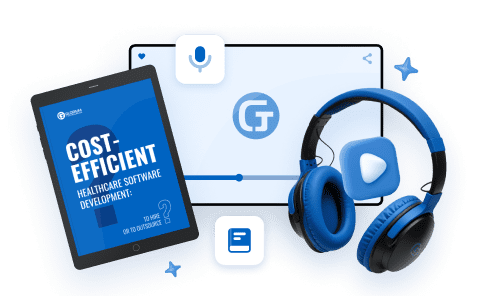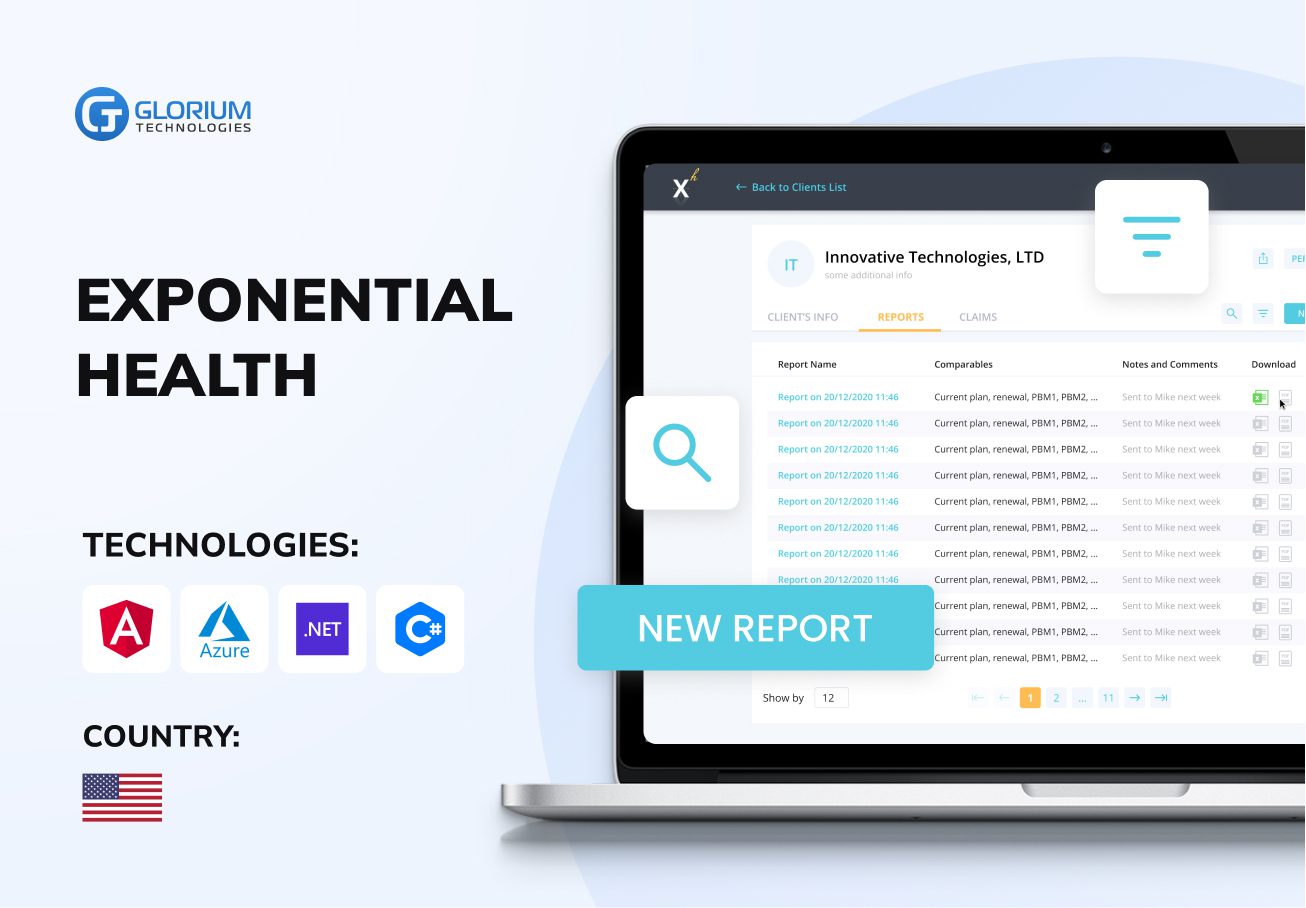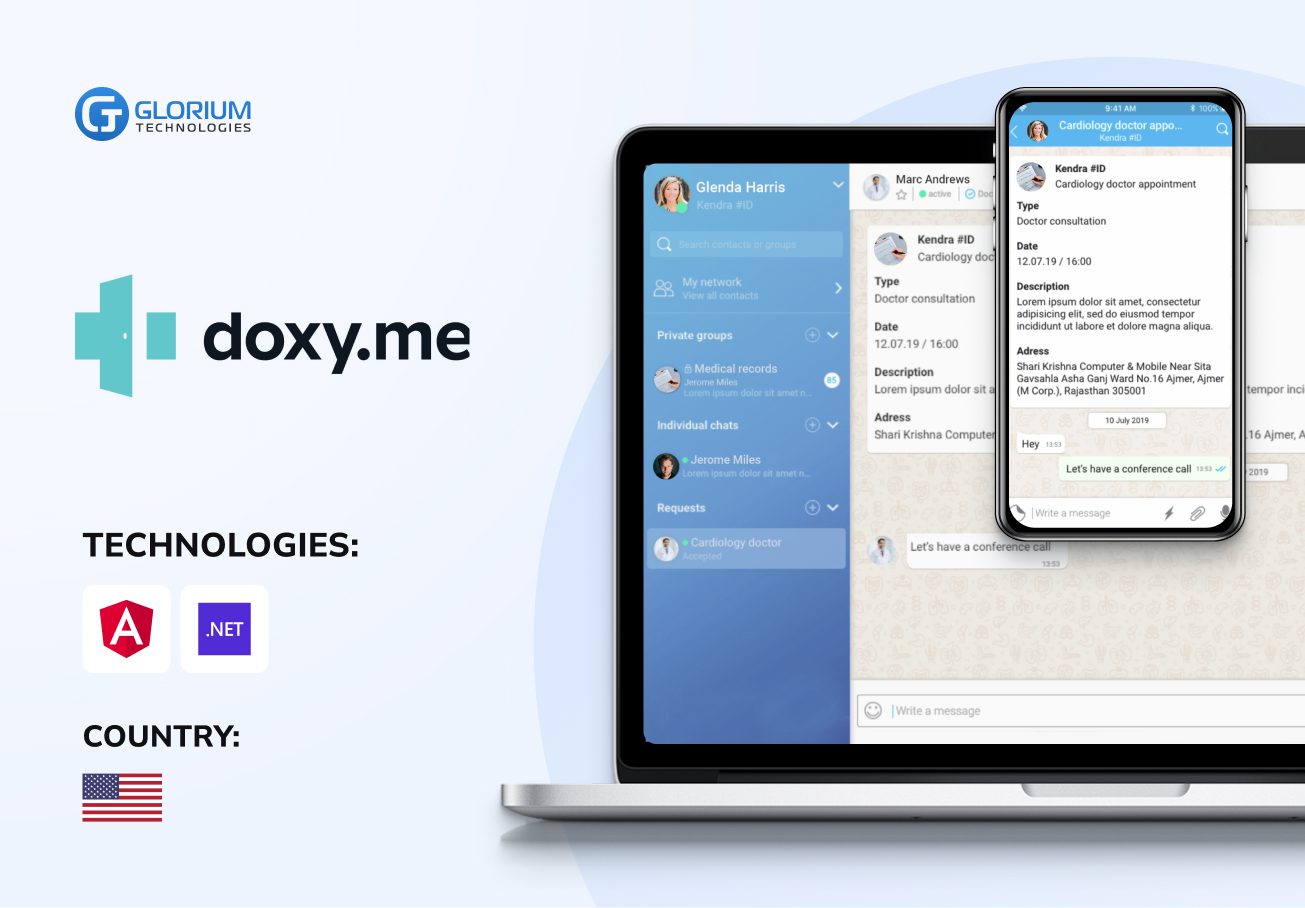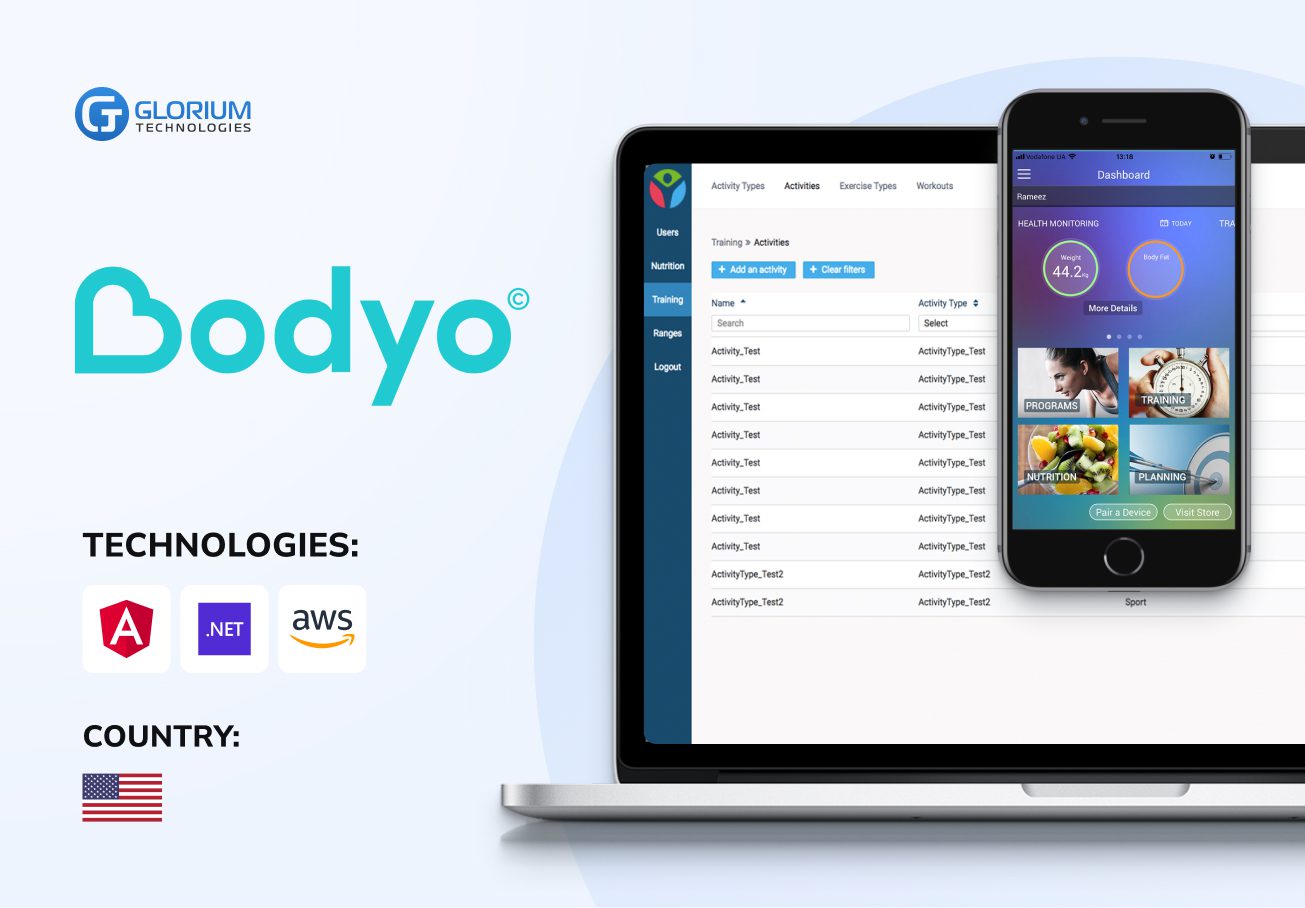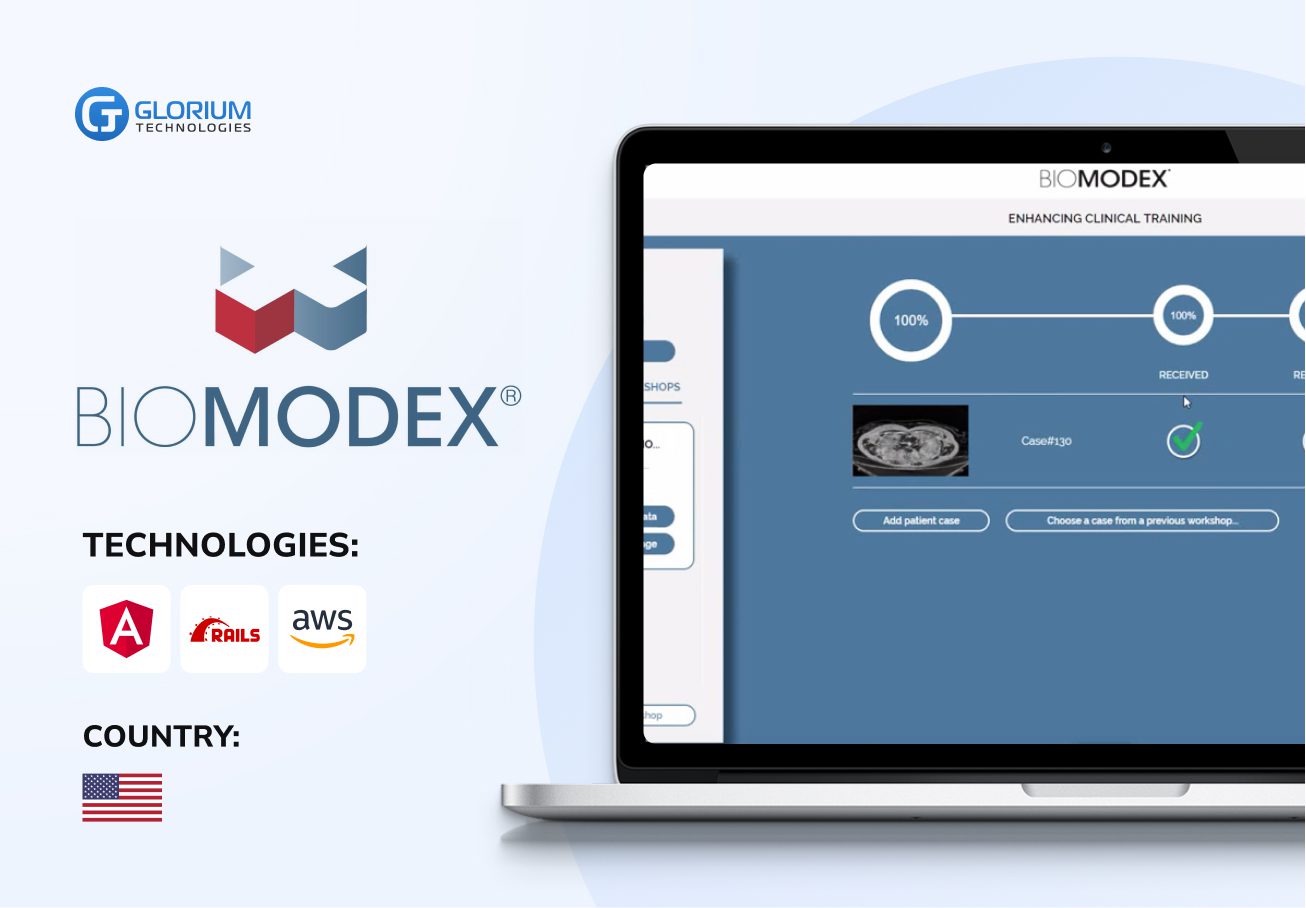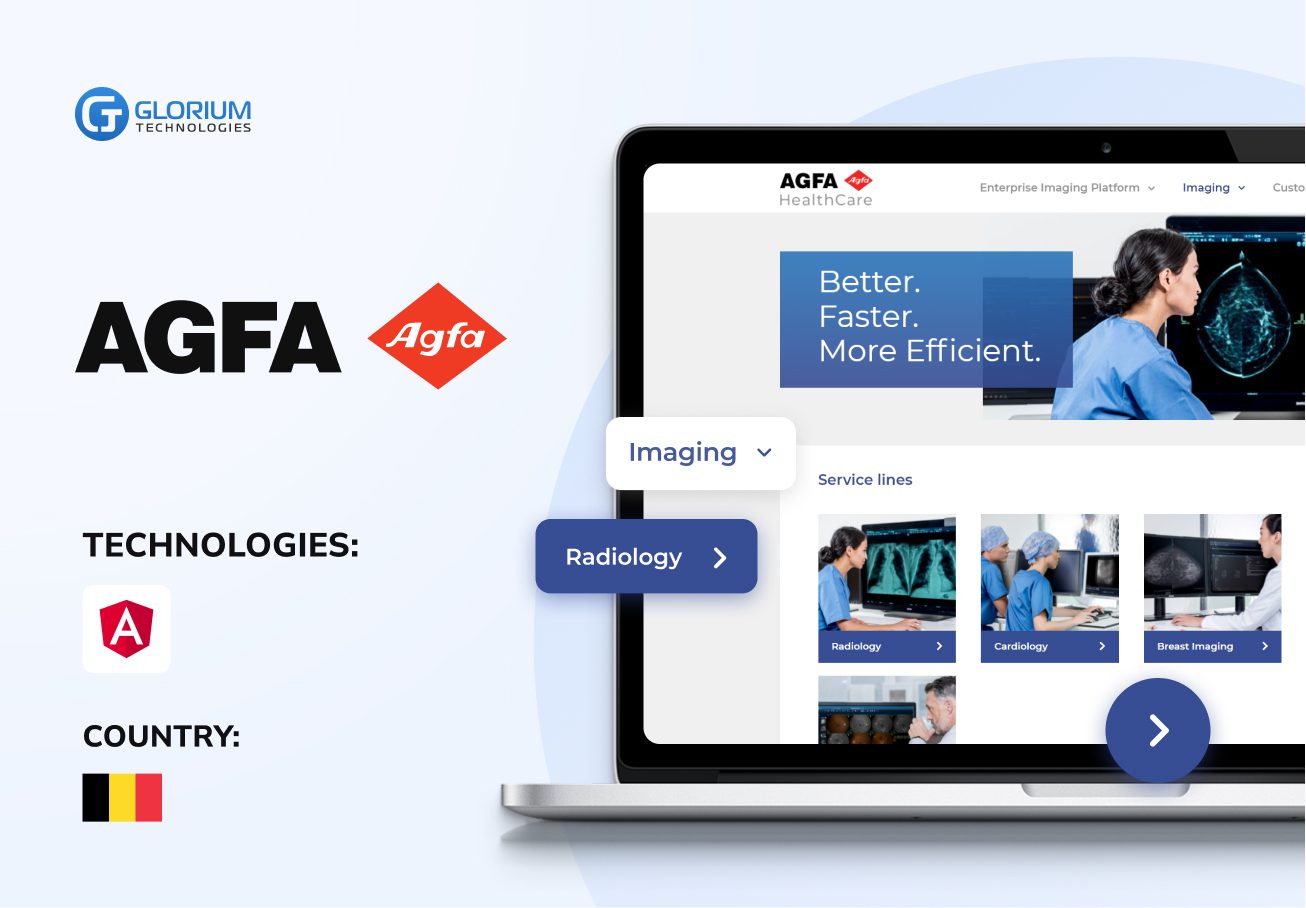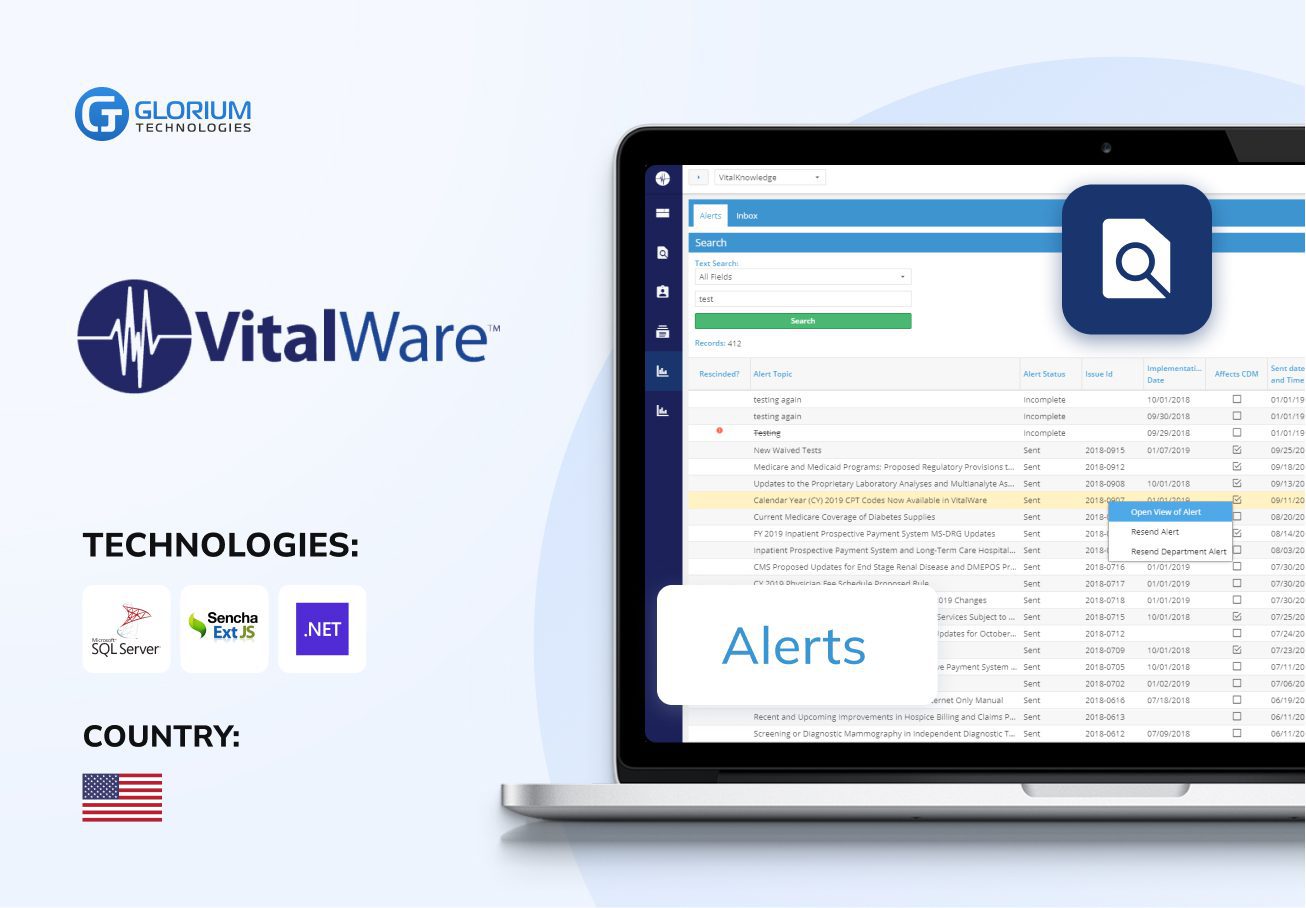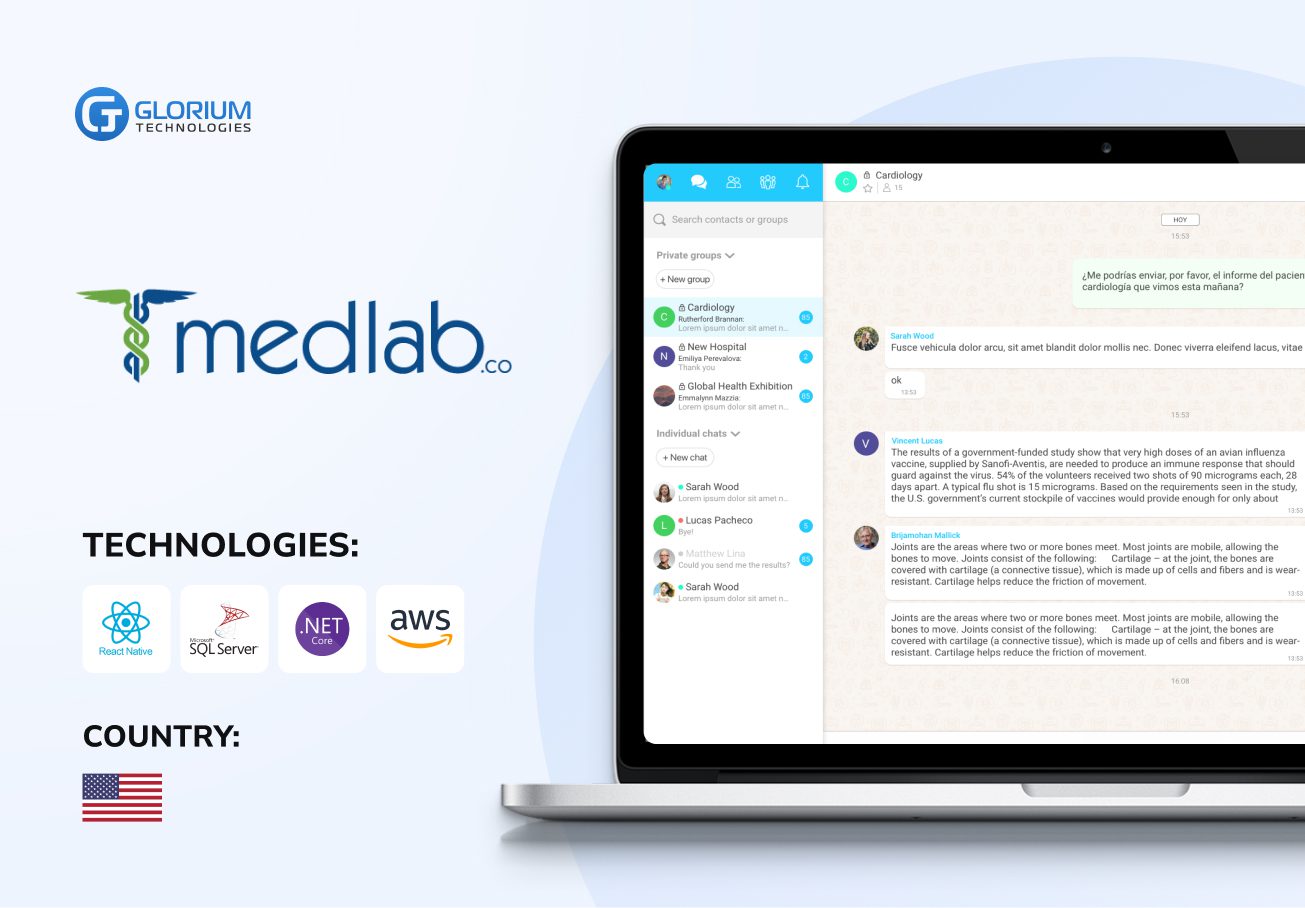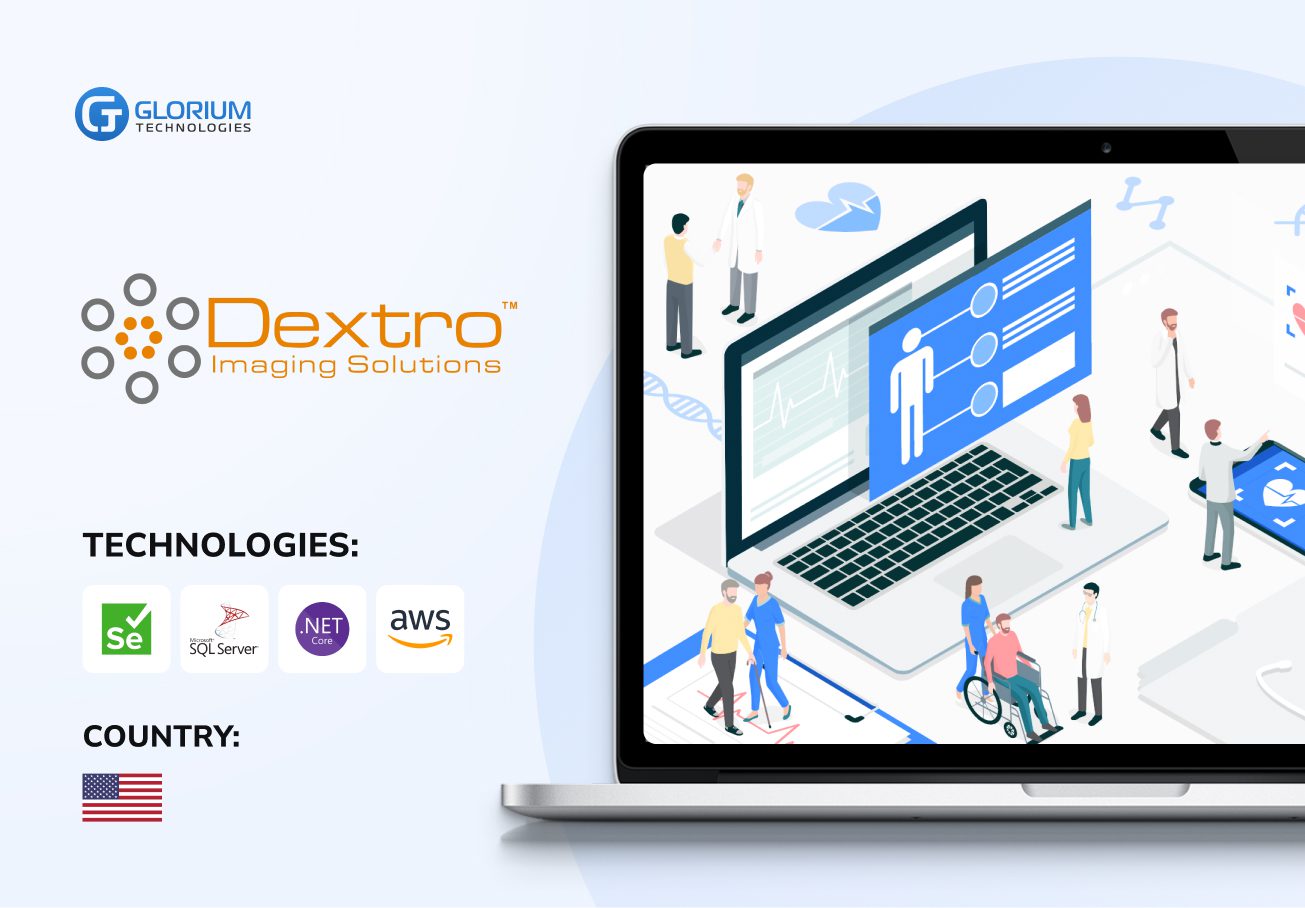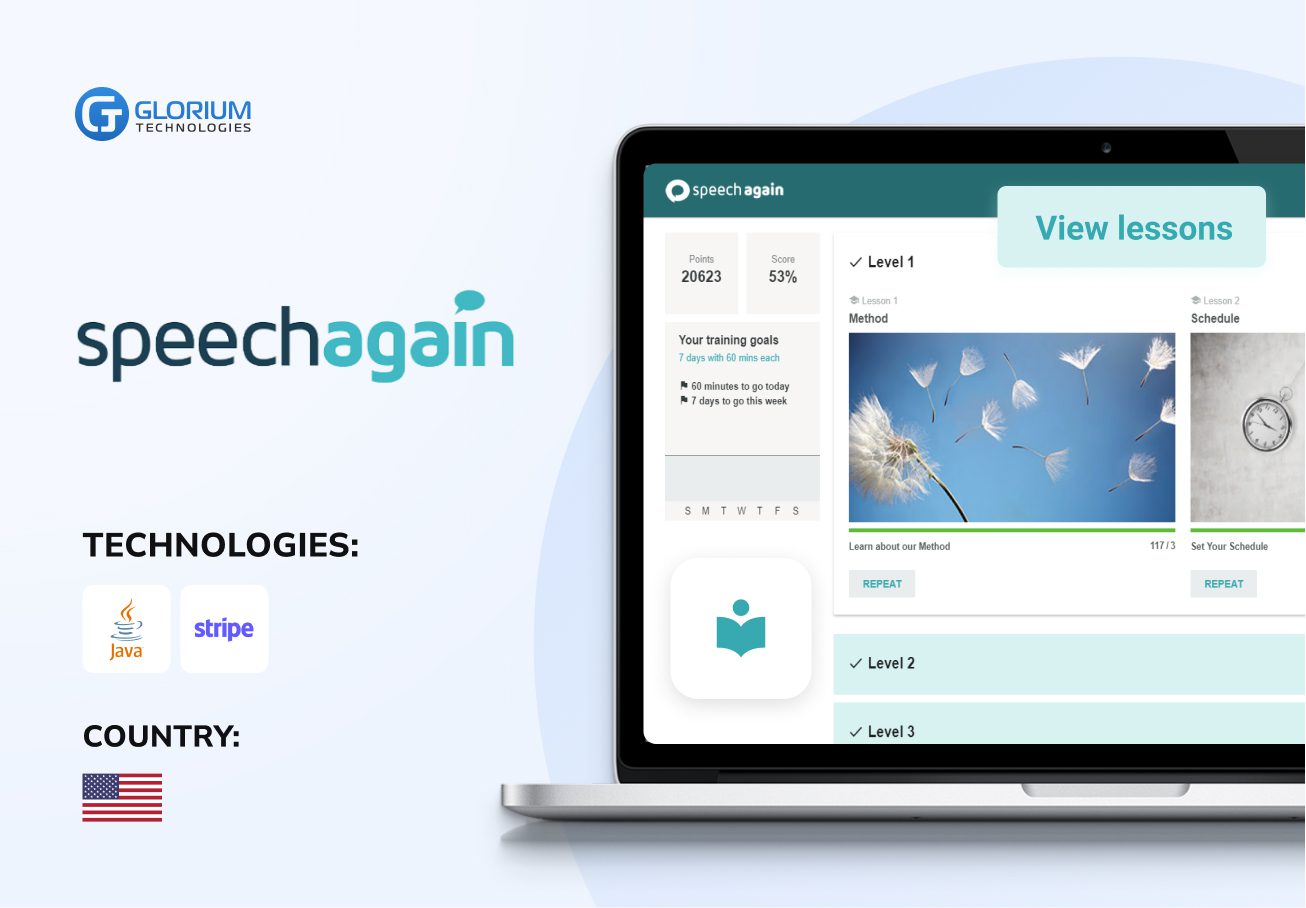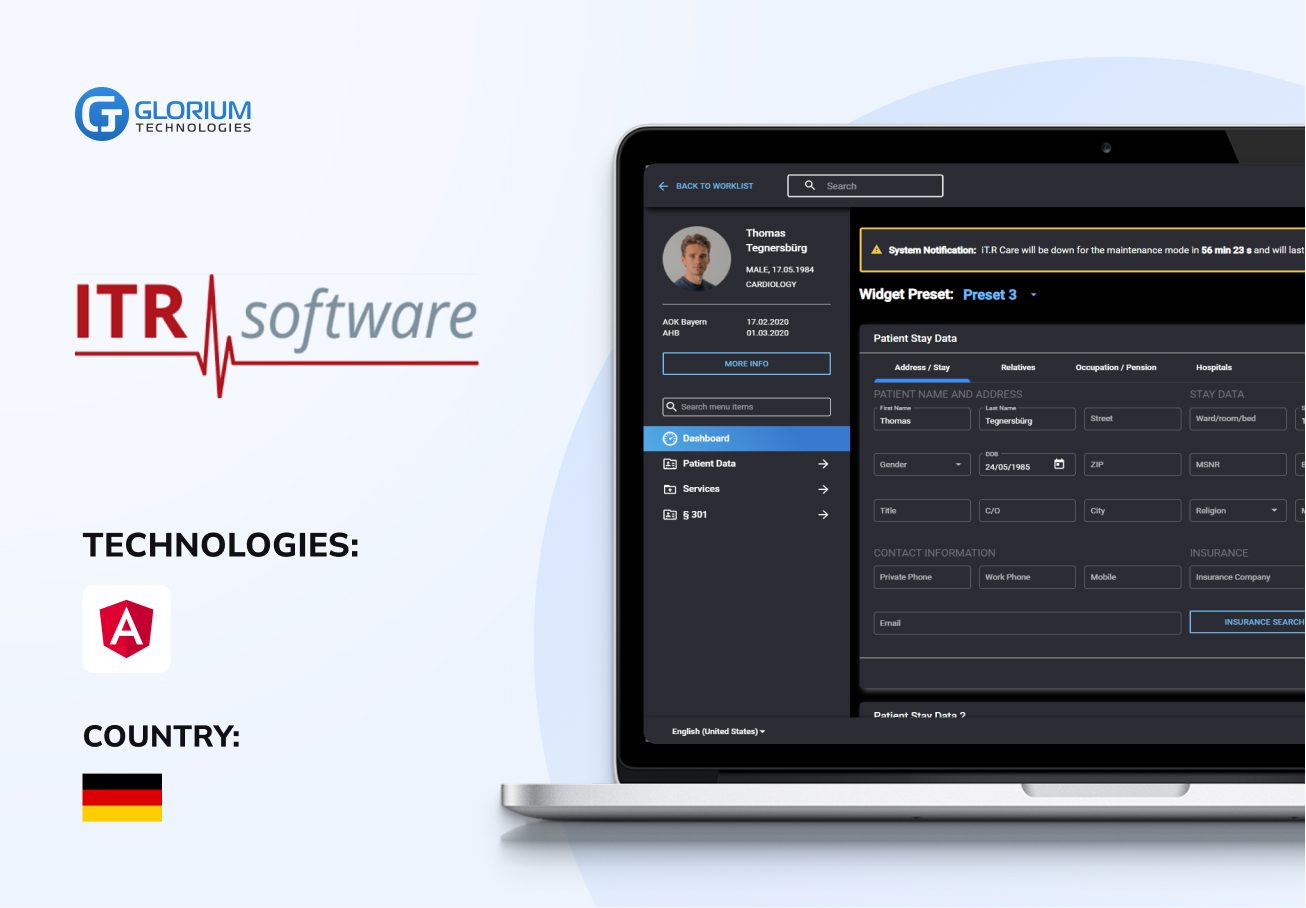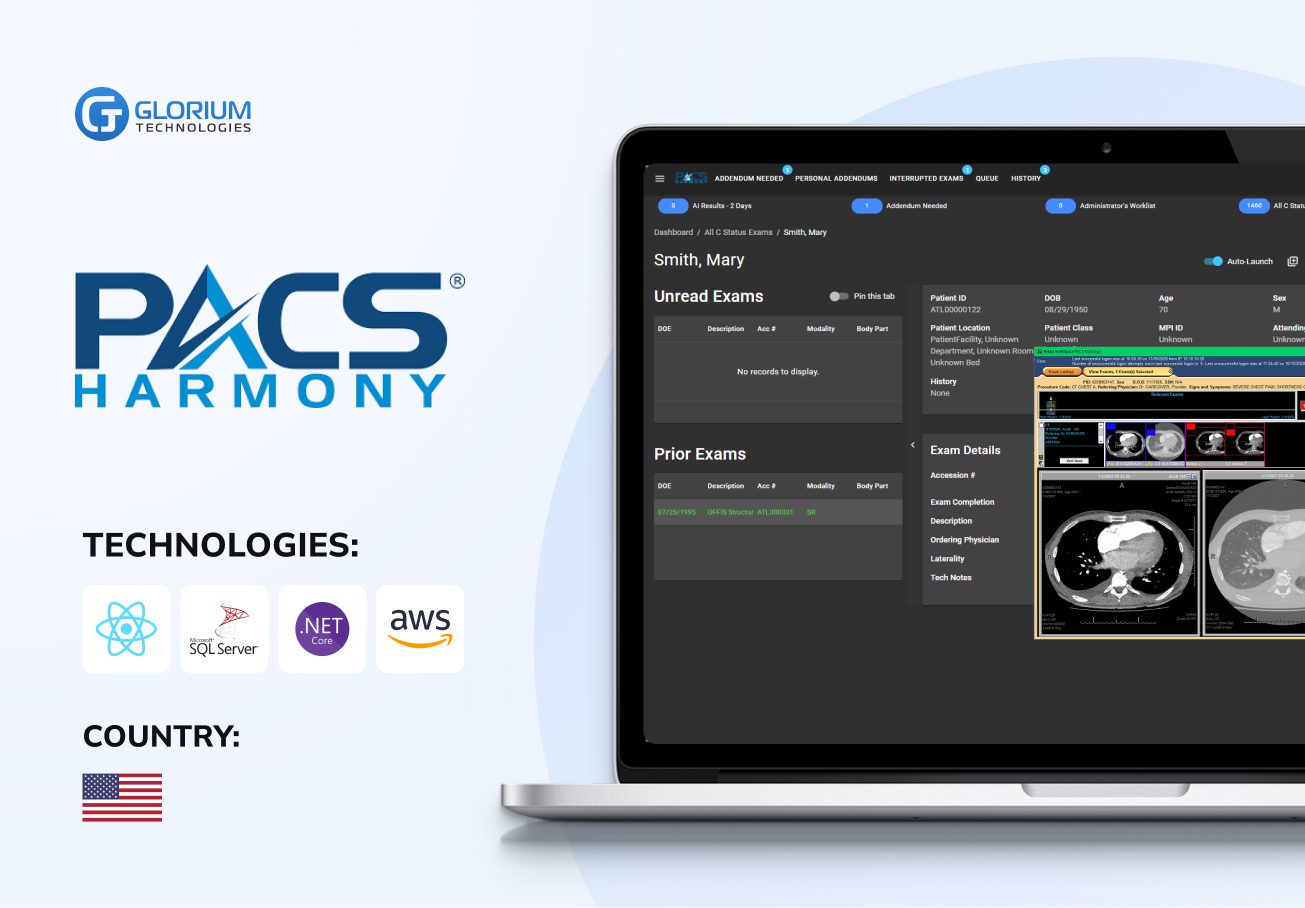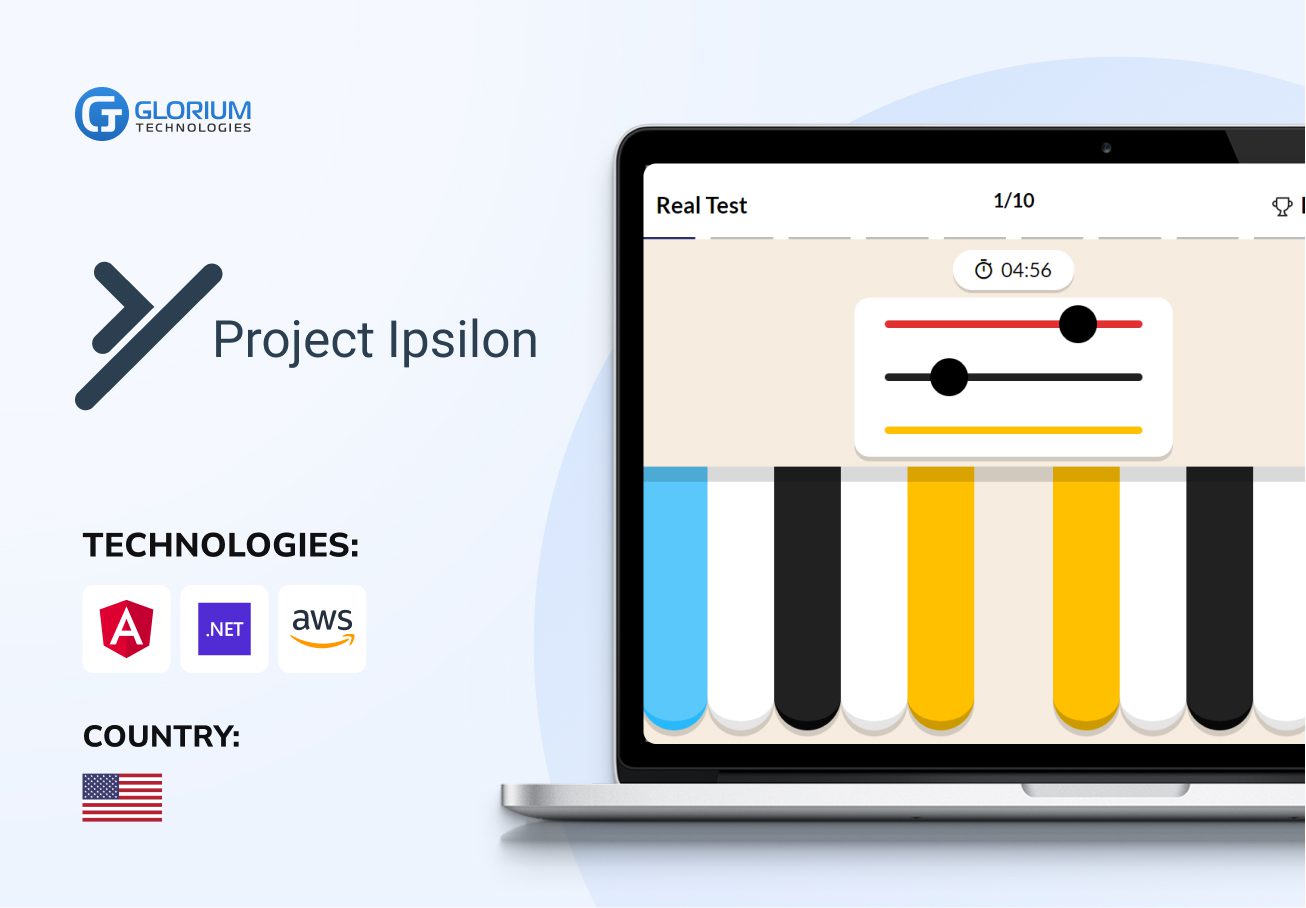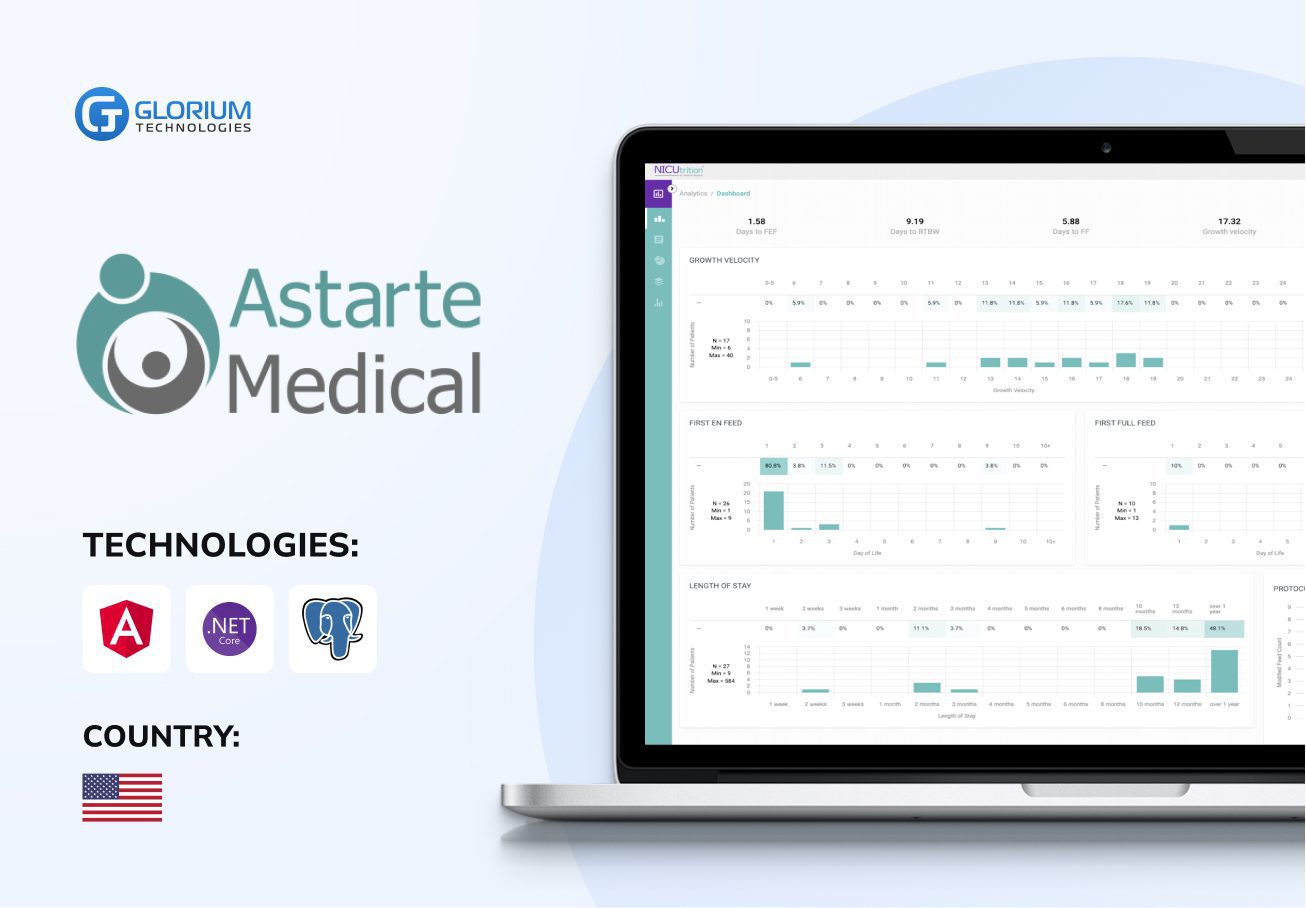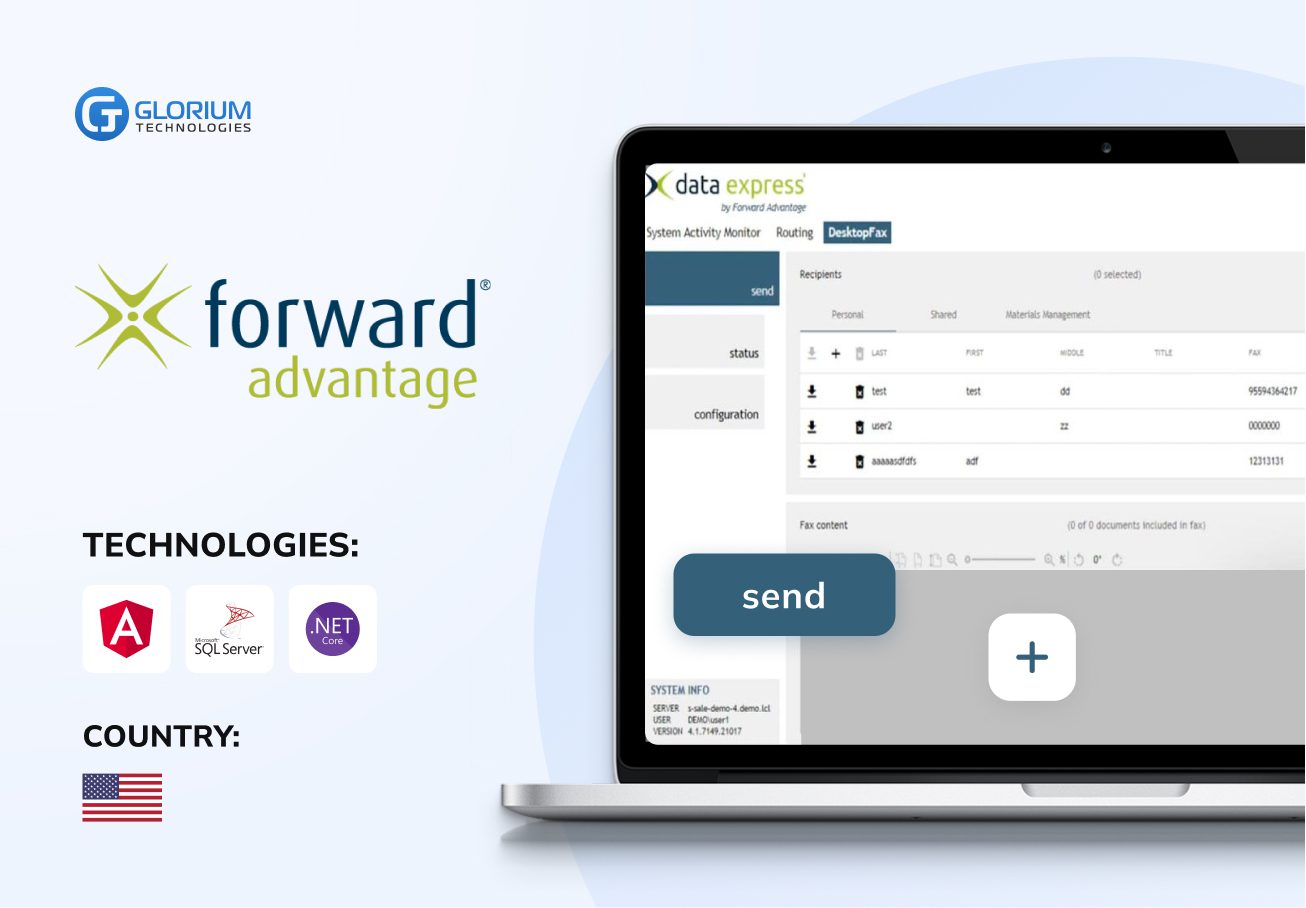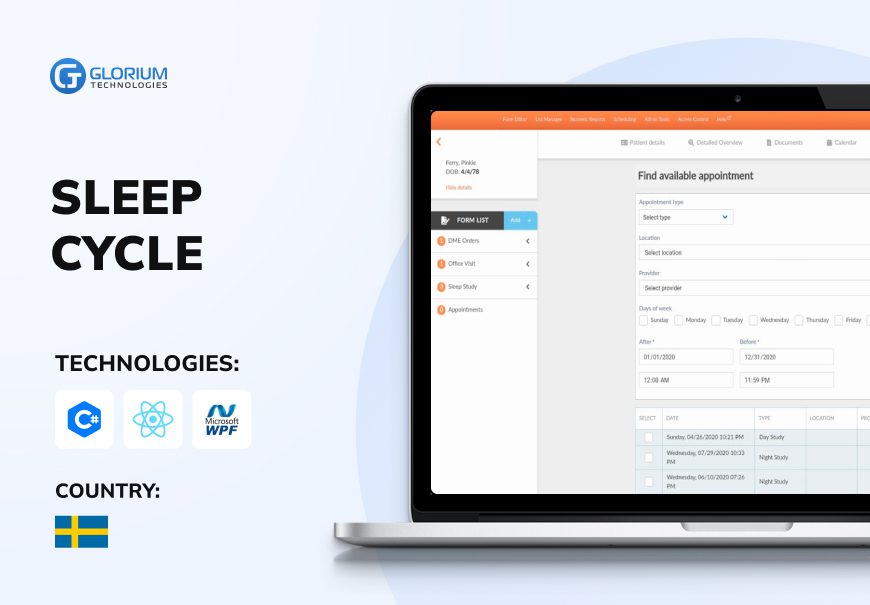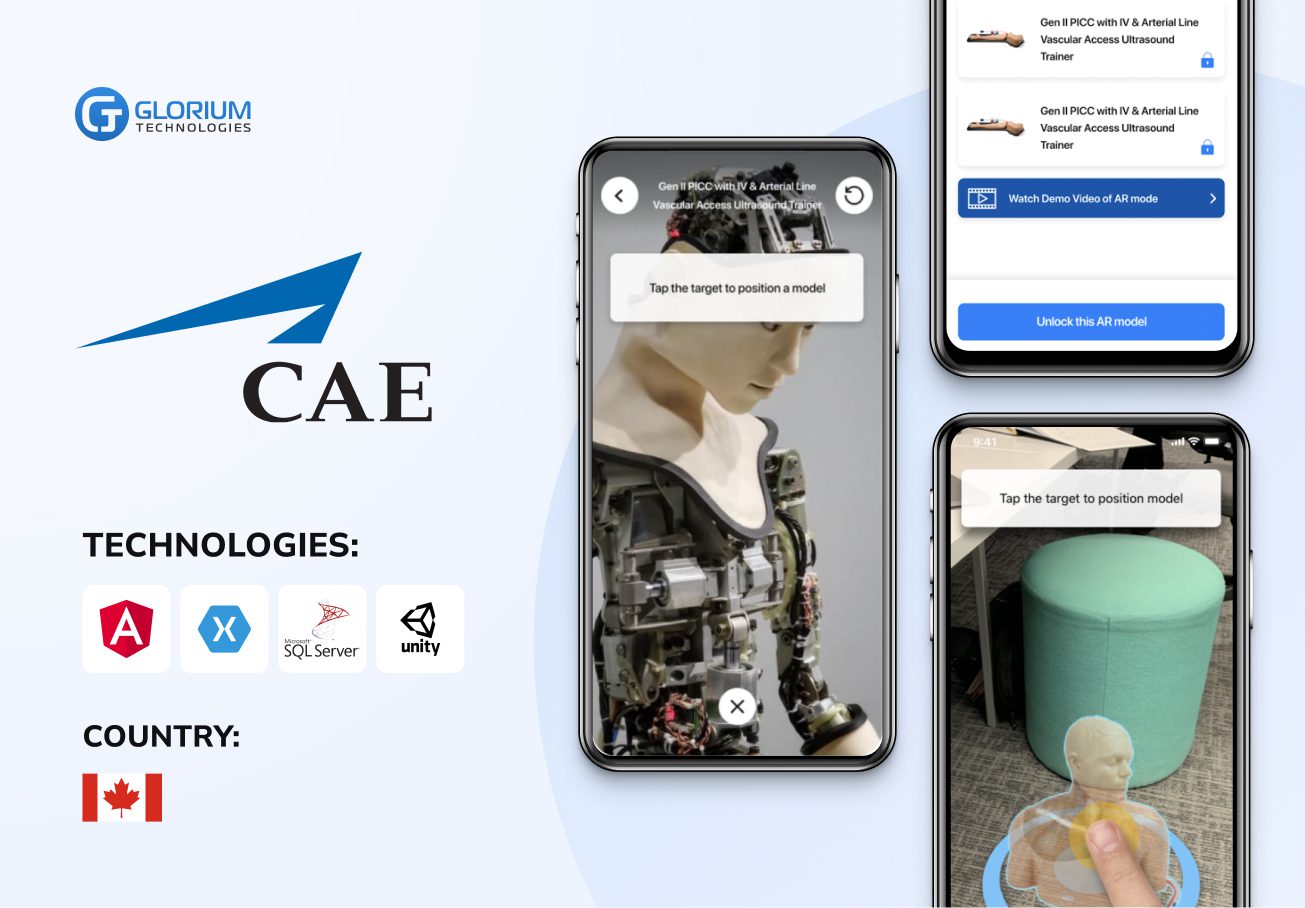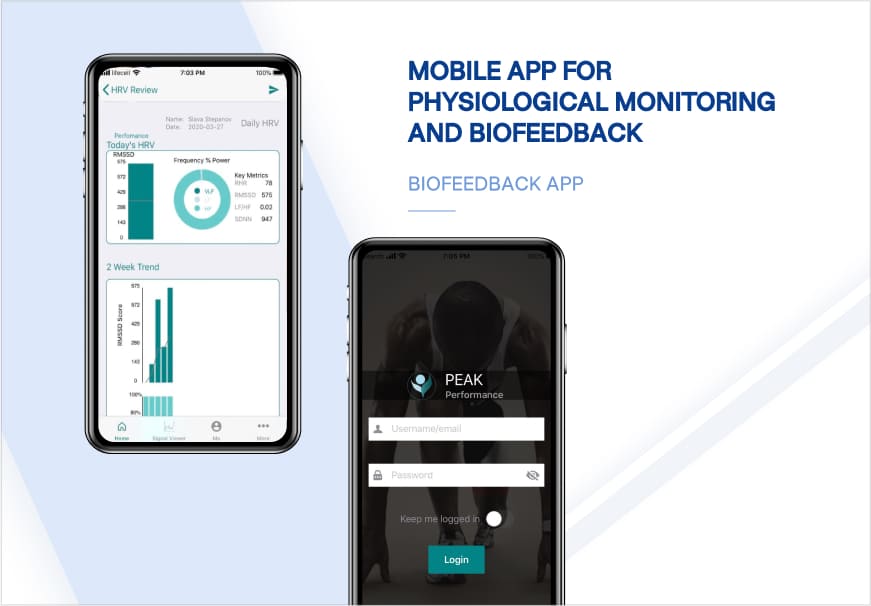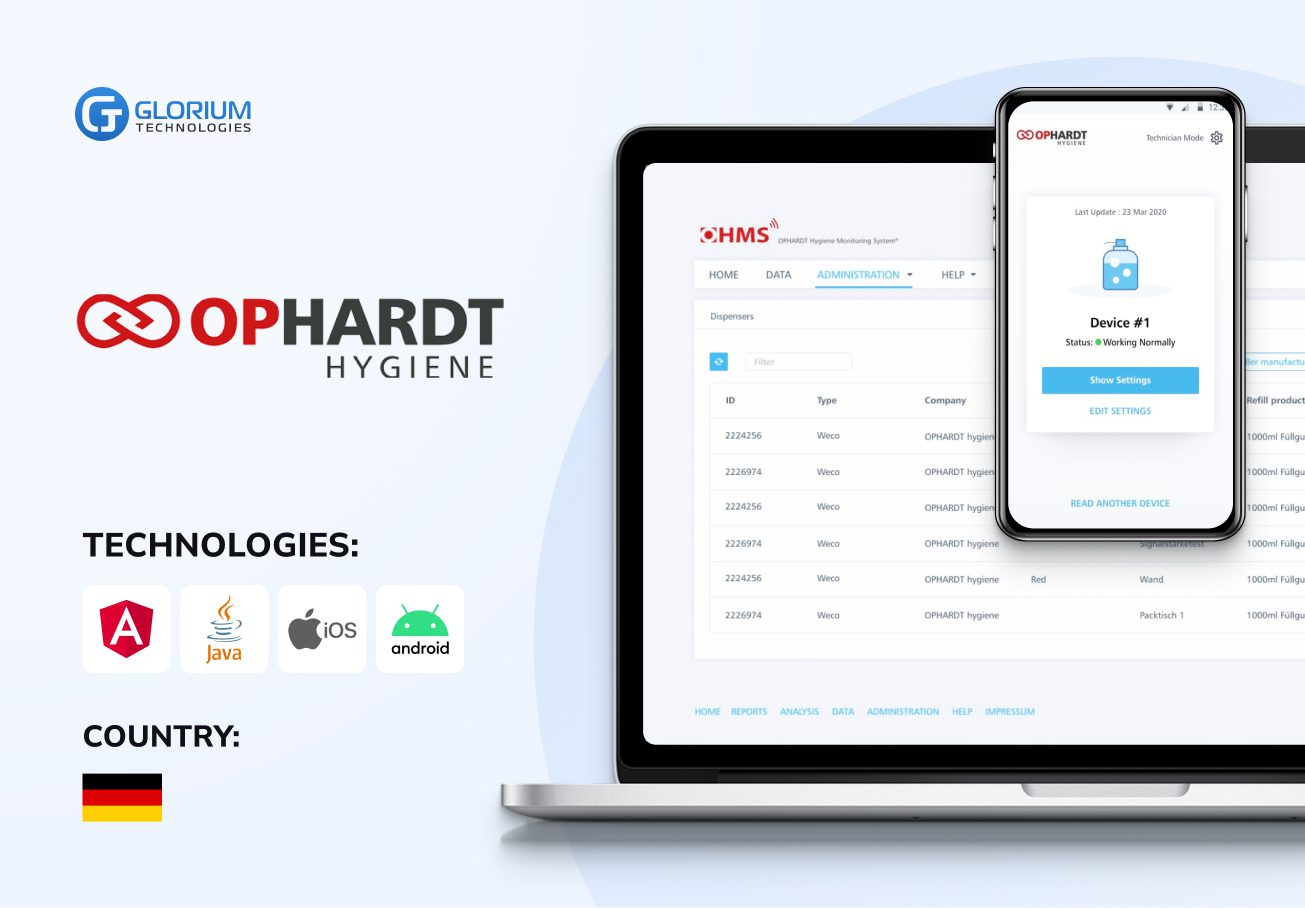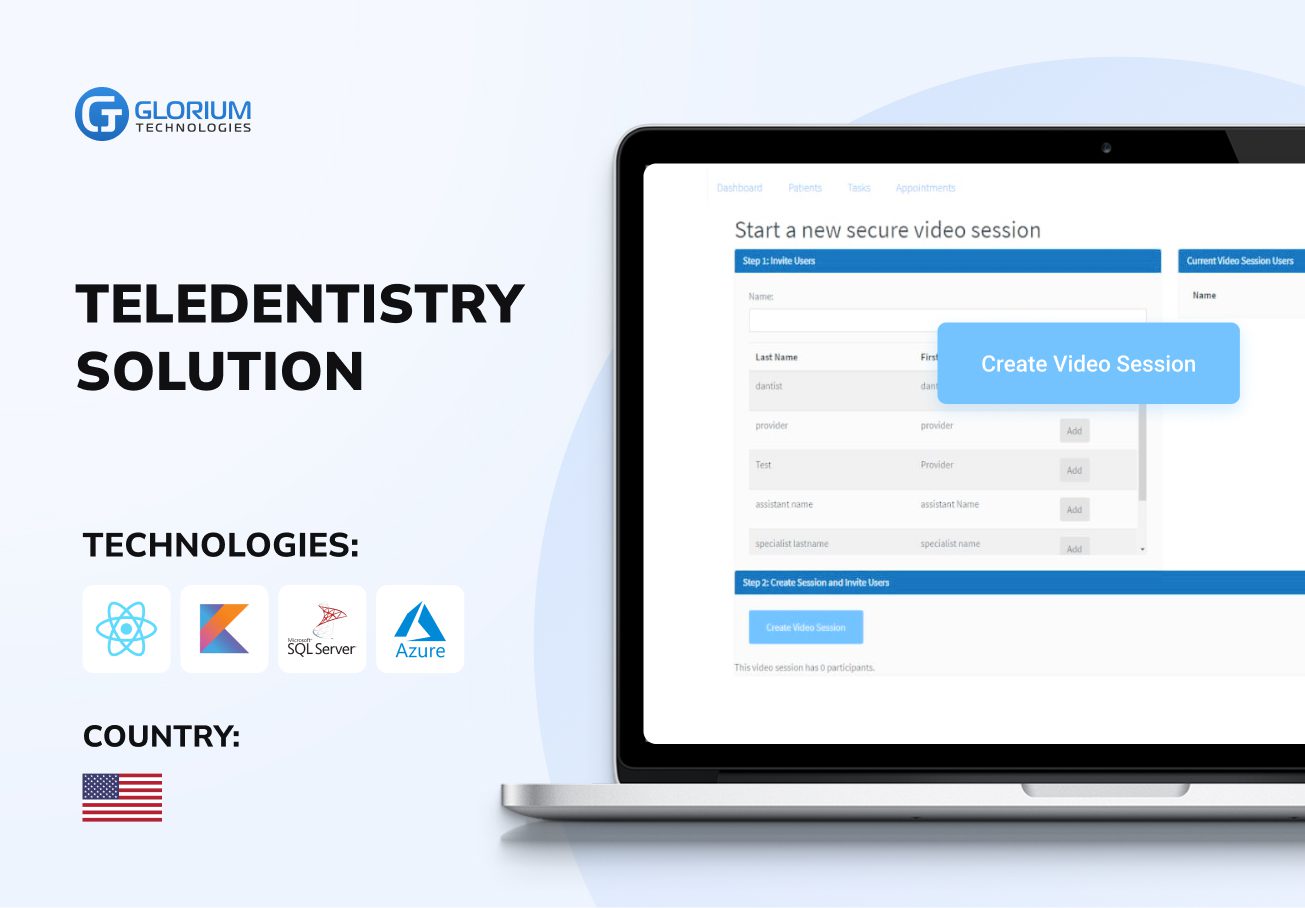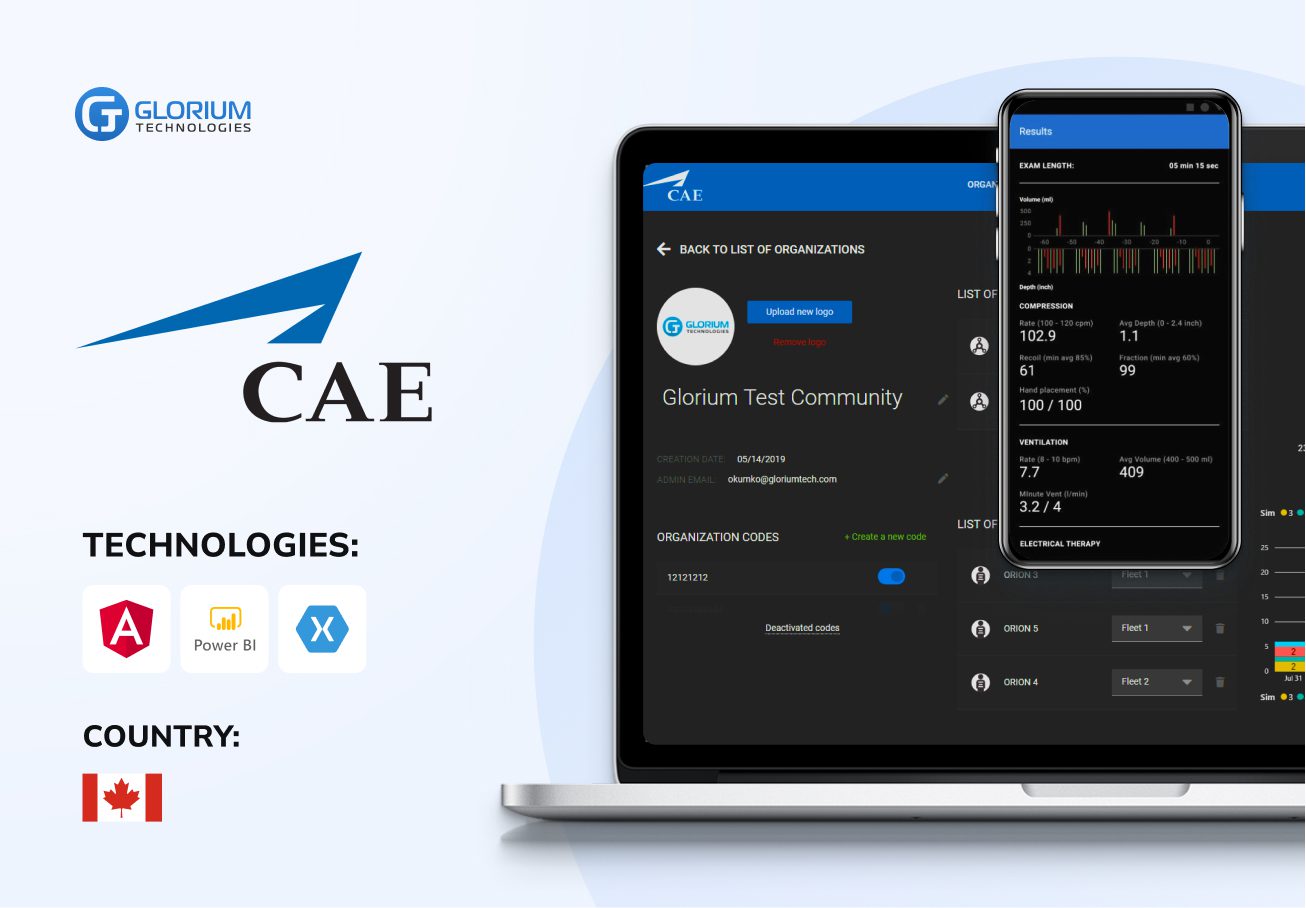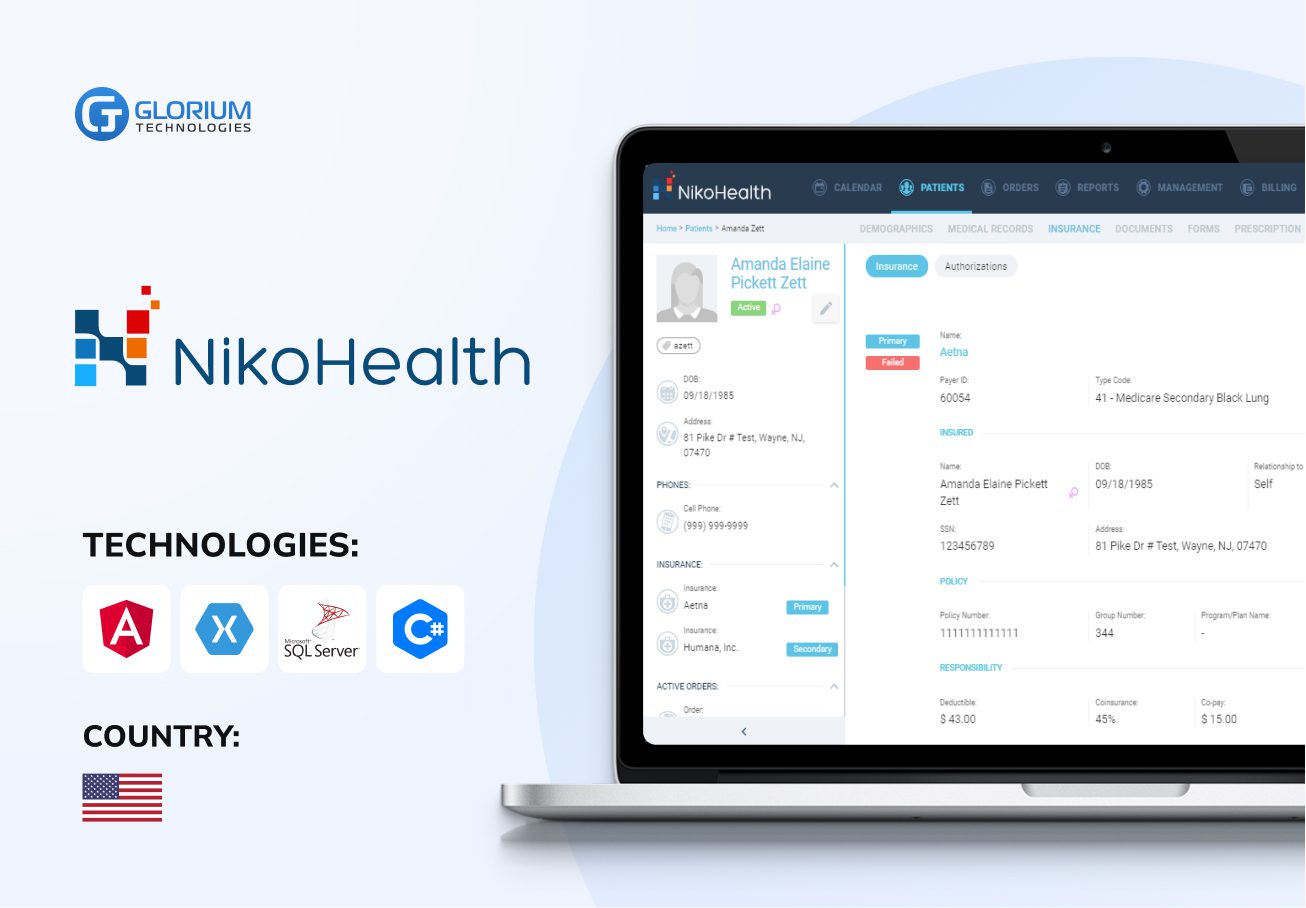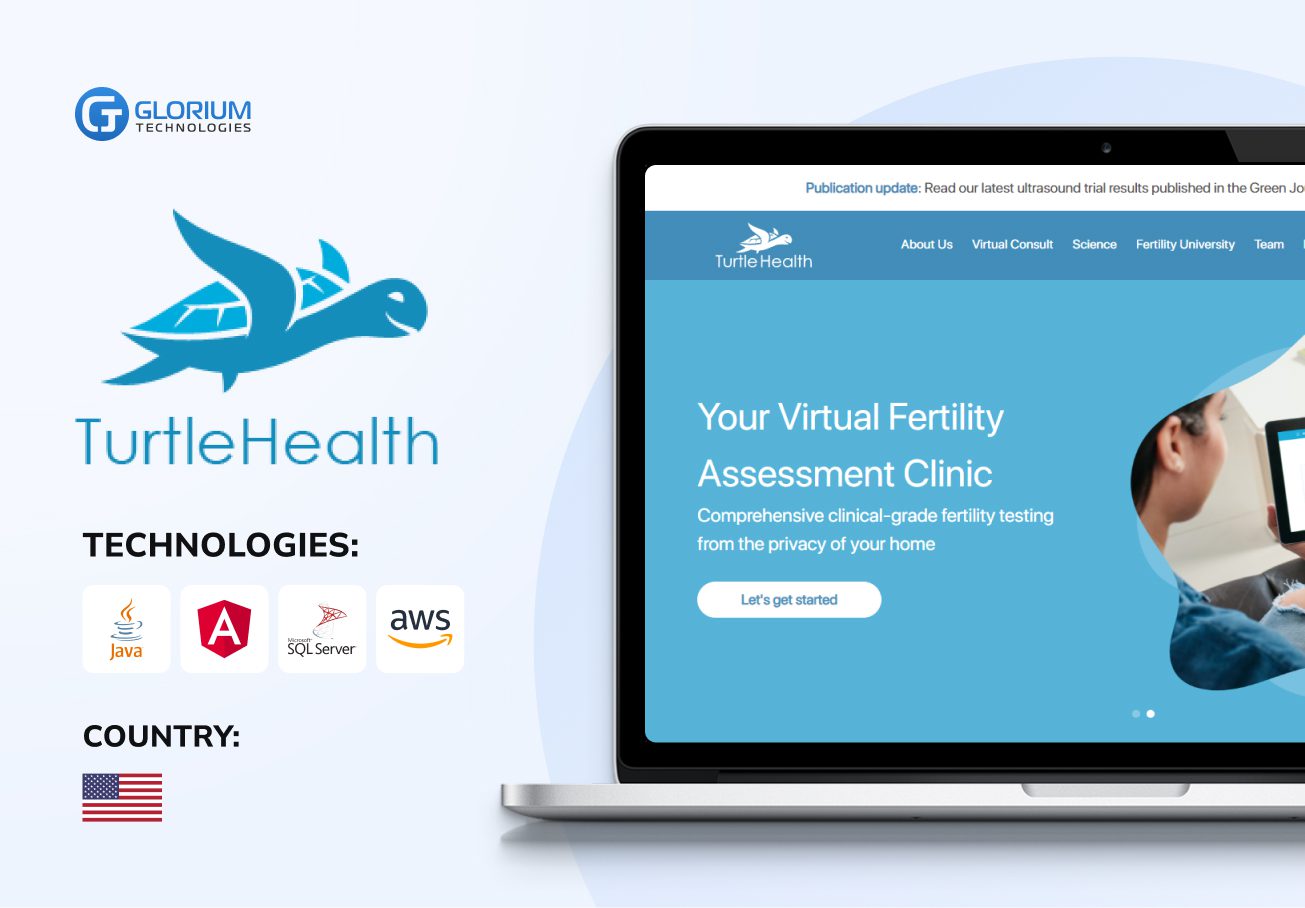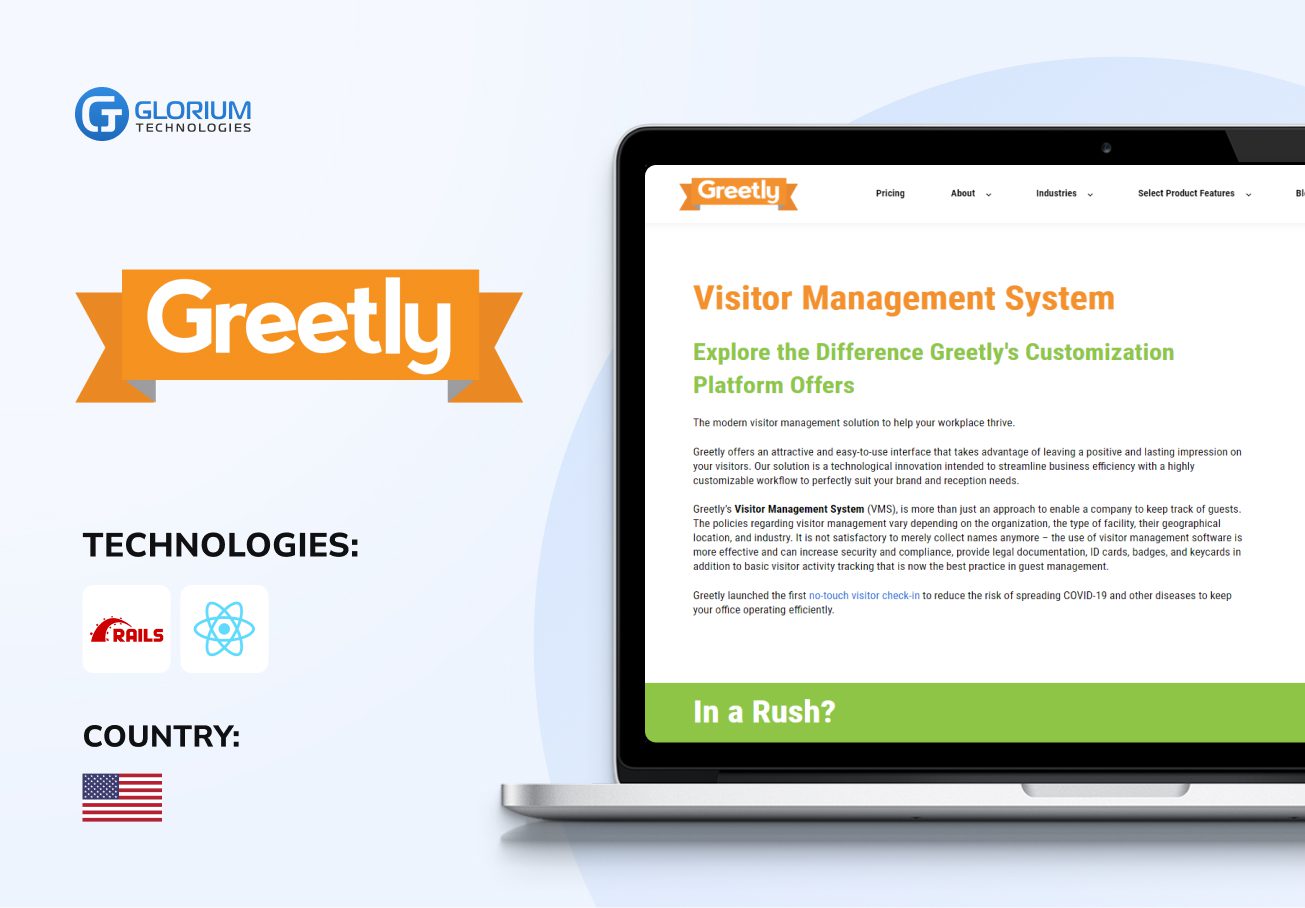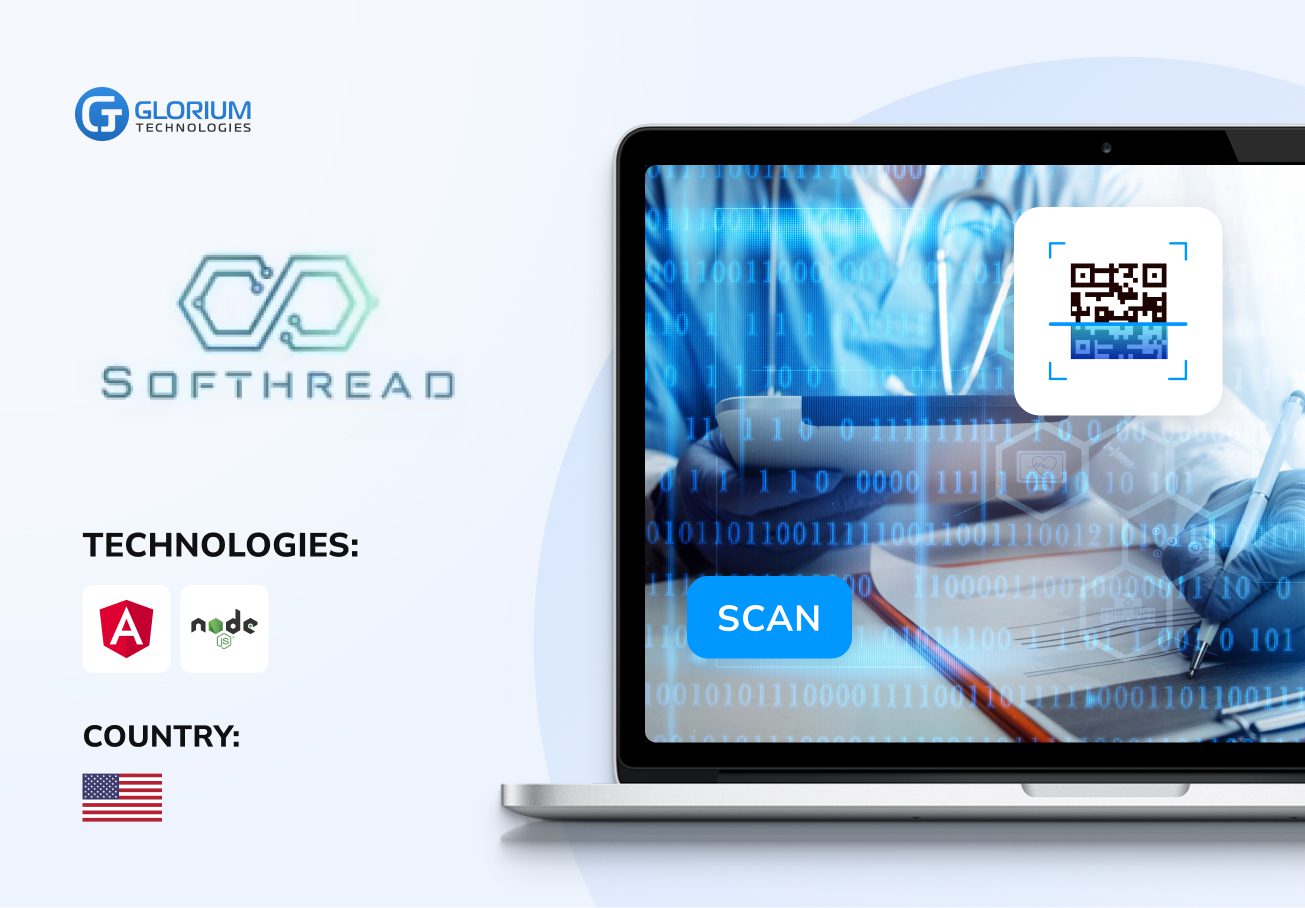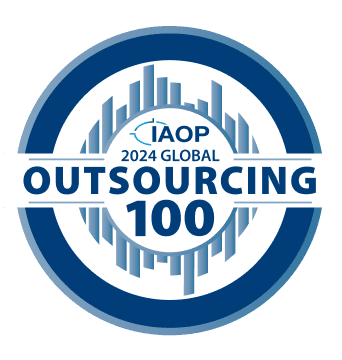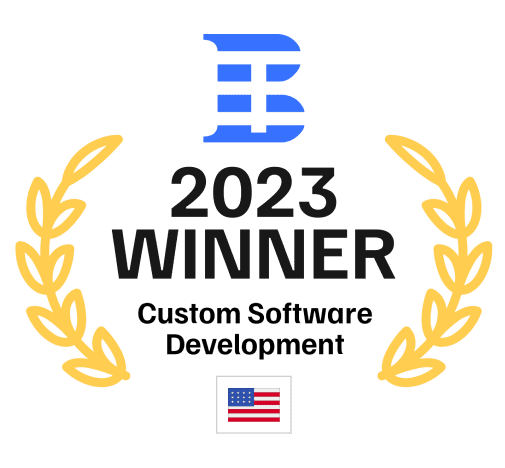Pharmacy Management Software Development
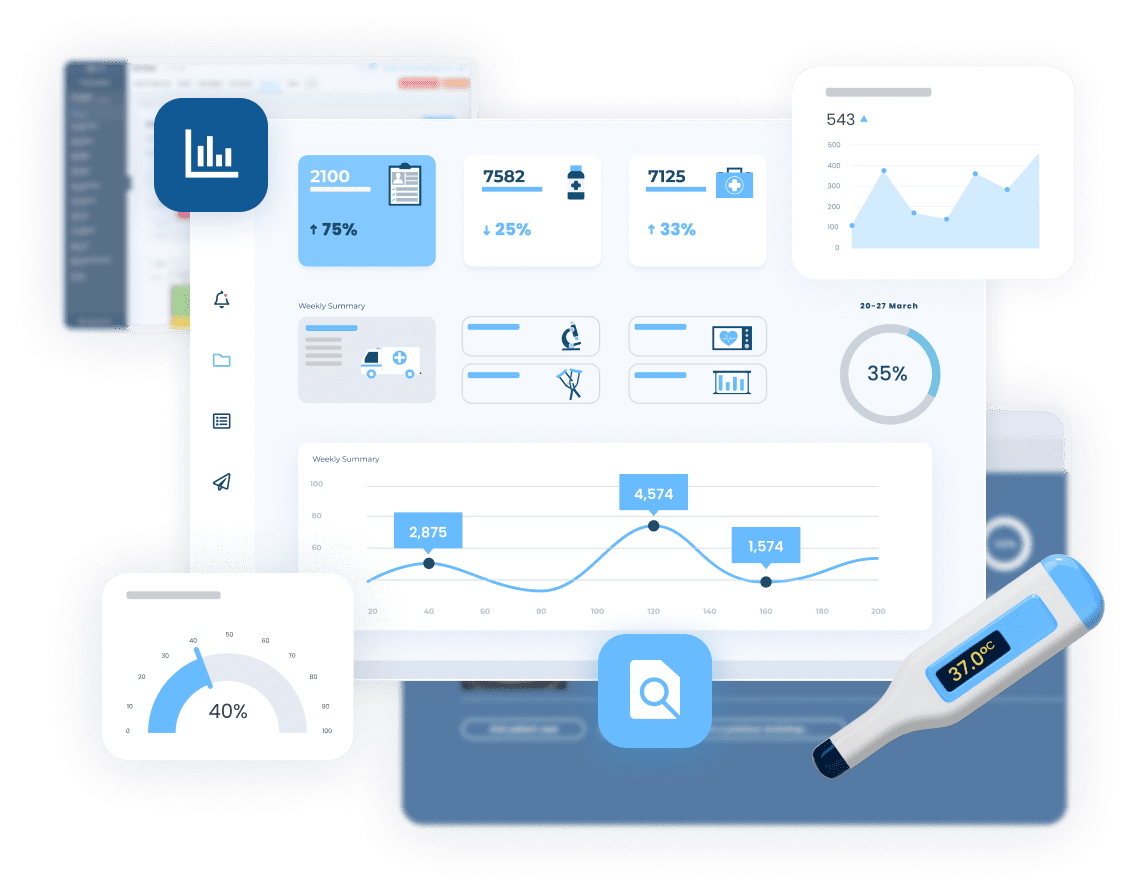

Cost Calculator
Choose software type
Choose the solution type
What would you like to do?
What do you already have?
When do you want to start the project?
You can select more than one variant

Pharmaceutical software development requires deep knowledge of the industry regulations and data protection laws.
Building software for such a complex sector can be challenging. We can help you build systems that comply with regulations and encrypt your data to protect you from cyberattacks.
Healthcare regulations are strict, precise, and always evolving. It can be difficult to keep up with the developments and changes.
To avoid billing mistakes and penalties, we recommend working with a professional team like Glorium Technologies to guarantee both compliance with regulations and software effectiveness.
Building pharmaceutical software is pricey. There’s no denying that. However, you might get entangled in hidden costs, make costly mistakes, and spend resources on hiring an in-house team.
Outsourcing can solve this challenge for you. You can delegate pharmaceutical software development to professionals and avoid both short- and long-term high costs.
Pharmacy Management Software Types We Build
Did you set your mind on what kind of pharmaceutical software you need? Explore our most-requested software types.
A well-made telepharmacy software makes it ten times easier for pharmacists to offer remote services to their customers. We can build you software that helps your users manage prescription medication and receive consulting and other services.
If you need a helpful tool to improve and automate the operations of your pharmacy, this type of software is for you. You can easily control your inventory, process prescriptions, billing, and reporting. We can build software with the necessary and advanced features per your request.
If your desire is to deliver personalized medication solutions to your clients, our pharmacy compound systems are perfect for you. We build this specialized system for our clients who want to manage formulation recipes, track ingredient inventory, and ensure high quality control.
Our development enhances the sales transaction process, offers real-time tracking, and includes customer loyalty programs to improve satisfaction. This system is used to sell and control stock on a daily basis, thus enhancing the general running of the business.
Custom Software Solutions for Platforms and Devices
No need to hire extra professionals for cross-platform integration. We can develop pharmaceutical software solutions that effortlessly work on various platforms.
Hold user data, prescriptions, medication stock, billing, and appointments on their mobile devices to facilitate easy working of the pharmacy.
Manage prescriptions, inventory, user data, billing, and reporting through a web interface. The section of our work that presents our web systems provides convenience and ease.
Web-based systems that are hosted on remote servers where pharmacists and pharmacy staff can be able to manage prescription processing, inventory, patient information, billing and other pharmacy functions.
Must-Have Features for Pharmacy Software Solutions
A good way to control the stock of the medicine and the dates of their expiry as well as for the system to automatically generate the purchase orders when the stock is low.
This solution helps to achieve right stock management, reduce wastage, and make the restocking of the inventory more efficient for the pharmaceutical companies, improving patient health outcomes.
This feature helps manage prescriptions digitally, which is easier. It allows you to capture, store, and retrieve patient prescription data securely.
Pharmaceutical companies have noted that going digital has been one of the best decisions since it improves workflows, reduces errors, and keeps patient info safe.
All pharmaceutical software solutions must have this feature to centralize database storage. It helps keep medical history and contact details intact so that you can provide personalized care.
We can help you build software solutions with this feature and help you manage your system efficiently.
A feature that reviews medication orders for drug-patient interactions and contraindications and alerts the pharmacists of the possible adverse effects.
With the help of our skilled programmers, this crucial safety measure can be incorporated, allowing pharmacists to make correct decisions and avoid adverse drug combinations.
A must-have feature for your software solution is automated billing processing for transactions, invoices, payments, and insurance claims.
Glorium Technologies ensures that with the billing feature, you can improve revenue management.
No software solution is complete without this feature. It’s essential to view sales trends, inventory turnover, prescription volume, and other essential data to promise effective workflow for pharmaceutical companies.
We can build software with this feature to help you make informed decisions.
Making processes easier – the barcode scanning feature makes it extremely easy and accurate to track inventory.
We can build you software that allows pharmacists to streamline stock management, scan medications, and more.
As you already know, the pharmaceutical industry is full of strict regulatory compliance rules that all software should adhere to.
This feature is essential for all pharmaceutical software and requires a professional approach.
HIPAA-Compliant Pharmacy Management Software Systems
Serving specific pharmacies, our solution uses digital innovation to track patients’ medical information. It also has a feature of Electronic Medical Records (EMRs) to ease the billing system and increase productivity.
As opposed to integrated systems, our interconnected software employs a harmonious approach where information on a patient’s medical history can be easily transferred from one pharmacy to another, thus enhancing coordination and patient health outcomes.
To make it more patient-friendly, we have developed solutions in which patients can manage all their pharmacy information through personal health records.
Cost of Pharmacy Software Development Services
What Sets Us Apart in Pharmaceutical Software Development?
Our Certifications
With over a decade of experience in software development, we prioritize the safety and compliance of our customized solutions delivered to clients across diverse locations.
- Industry-wide standards including HIPAA, HL7&FHIR, and GDPR
- ISO 9001 certification for Quality Management
- ISO 13485 certification for Quality Management for Medical Devices
- ISO 27001 certification for Information Security Management System.
Explore
We start our process with research and draft pain points to identify what challenges need to be addressed.
Craft Solution
Once we know the challenges in and out, we can start working on the type of solution.
Prototyping
We value this step since it allows you to view your product early on. This helps us make any necessary changes before the development process.
Building and Testing
After you approve the prototype, our software engineers will start building your solution, and QA engineers will test, debug, and improve efficiency.
Execution
At this stage, you’ll already have custom software built. We also provide continuous support to make sure it meets all user needs.
Ongoing Assistance
We, of course, provide post-launch support and maintenance to upgrade and improve your software.
What our clients say about us
Some clients' journeys
Who we are
About usGlorium Technologies is a full-cycle app & software development company which covers specific client business needs and manage them with the help of the best possible technology solutions.
Since 2010, we have been inventing digital breakthroughs, helping startups and businesses come out on top in their markets.

Why choose us
How to Transform Operations with Pharmaceutical Software Development
In pharmaceutical management development, the use of advanced software solutions is becoming more common. These systems help manage research data and make sure everything follows legal rules. This is important for developing new medicines and for running clinical trials safely and effectively.
Software for managing data helps keep track of patient information and prescriptions. It makes sure pharmacies run smoothly and efficiently. A good pharmacy software system is key for handling medicines and helping patients correctly and quickly.
Drug discovery and development also rely heavily on having good data management. It’s important to keep patient data safe and use it to improve patient care. As technology gets better, it also helps in making patient engagement a bigger focus, making sure patients are active in managing their health.
Benefits of Pharmaceutical Software Development
Pharmaceutical software development brings big benefits to healthcare. It helps healthcare providers keep track of medicine stock better through improved inventory management. This software also makes it easier for healthcare workers to get the data they need quickly because everything is stored in one place.
This software can cut down on mistakes by using machine learning to look at big amounts of data and suggest the best actions. Fewer mistakes mean better care for patients, leading to healthier lives. In short, this kind of software makes things run smoother and more safely in healthcare settings, helping everyone from the doctors to the patients.
Data management with pharmacy management systems
Data management is a critical component of pharmacy management systems, playing a pivotal role in how pharmacies handle and utilize information. Effective data management allows for the accurate collection and storage of patient and drug information, ensuring that all data is readily accessible when needed. This level of data management not only streamlines workflow but also enhances safety by reducing the likelihood of errors.
Moreover, data management systems help in analyzing trends and making informed decisions, which is essential for the optimization of pharmacy operations. Through robust data management, pharmacies can ensure compliance with health regulations, manage inventory more effectively, and ultimately deliver better patient care.
Types of Pharmaceutical Management Software
Pharmaceutical management systems encompass a variety of software tools designed to manage different aspects of pharmaceutical operations, from drug development to patient care and regulatory compliance. Here’s a detailed look at the different types of pharmaceutical software management systems:
Pharmacy Management Systems
These systems are fundamental in pharmacies to manage the day-to-day operations such as prescription processing, inventory management, and billing. Pharmacy management software helps pharmacists automate tasks like medication dispensing, tracking drug interactions, and managing stock levels. This type of system ensures that pharmacies operate smoothly, reduce errors, and provide timely services to patients.
Electronic Health Records (EHR)
EHR systems are used by healthcare facilities to maintain comprehensive records of patient care, including detailed medication histories. For pharmaceutical management, EHRs are crucial in ensuring that the prescribed drugs are accurately recorded and monitored over time. This integration helps in assessing drug efficacy and safety for individual patients, which is vital for both treatment success and patient safety.
Clinical Trial Management Systems (CTMS)
These systems are designed explicitly for managing clinical trials, which are essential in drug development. A CTMS helps pharmaceutical companies and research institutions in planning, performing, and monitoring clinical trials efficiently. They ensure that trials are conducted following regulatory standards, manage participant data, track deadlines, and oversee budgeting and finance. Effective management of clinical trials accelerates drug development processes and helps bring new drugs to the market more quickly.
Regulatory Compliance Software
This software is tailored to help pharmaceutical companies ensure that they comply with global and local regulations. Compliance software assists in managing documentation, reports, and processes that are necessary to meet standards. This type of system is crucial for maintaining the legality of pharmaceutical products and practices, managing risk, and avoiding penalties.
Supply Chain Management Systems
These systems are used to manage the logistics of pharmaceutical products, from production to delivery at sales points. They track the movement of drugs across different stages of the supply chain, helping to ensure that medications are available where and when needed. By optimizing the supply chain, these systems help reduce costs, improve efficiency, and prevent drug shortages.
Patient Management Systems
Beyond the pharmacy’s scope, patient management systems help manage patient engagements, appointments, and communications. These systems are crucial for clinics and hospitals where managing patient treatment plans, follow-up visits, and medication schedules are integral. They enhance patient care by ensuring that all interactions and treatments are recorded and analyzed for better health outcomes.
Drug Discovery and Development Software
This software assists in the early stages of pharmaceutical product lifecycles — the discovery and formulation of new drugs. It utilizes data analysis, modeling, and simulation to predict how new drugs will perform, which significantly cuts down the time and cost associated with experimental trials. This type of software is vital for pharmaceutical research and development departments aiming to innovate and produce effective and safe medications.
Each type of pharmaceutical software management system addresses specific needs within the industry, collectively ensuring that pharmaceutical operations are not only efficient and compliant but also focused on improving patient outcomes. By leveraging these diverse systems, the pharmaceutical industry can maintain high standards of care and keep pace with the evolving healthcare landscape.
Custom Pharmaceutical Software Solutions: Development Process
Developing custom pharmaceutical software solutions involves a clear and well-structured process that guarantees the final product is both effective and meets industry regulations. Here’s a simple breakdown of the typical seven-step development process:
Requirement Gathering
This first step involves detailed consultations with you to understand your specific needs for the custom pharmaceutical software solutions. This ensures that everyone’s on the same page and the software developers have a clear blueprint of what needs to be built.
Planning and Designing
Armed with the requirements, the team sketches out the software architecture. This stage focuses on creating a detailed plan for the custom software solutions, outlining the technical framework, system design, and user interface.
Development
At this stage, software developers start research and development processes. They build the software according to the design plans. The process of custom pharmaceutical software development is handled with precision to ensure the software works smoothly and meets all regulatory standards.
Integration and Testing
After developing the software, the next step is to put all the pieces together and test them rigorously to catch any glitches. This phase is crucial to ensure data integrity and that the software functions perfectly. Tests might include checking individual parts, how they work together, and how the whole system operates to ensure it does what it’s supposed to do.
Implementation
Once testing is complete and the software is confirmed to be free of bugs, it’s time to start using it. The custom software solutions are rolled out into the actual work environment, where the final adjustments are made to ensure it fits perfectly into your daily operations.
Training and Support
After implementation, training sessions are organized to help your staff get comfortable with the new software.
Maintenance and Updates
The last step involves regular check-ups and updates to the custom pharmaceutical software solutions to ensure it keeps up with changes in technology and industry regulations. This keeps the software effective over the long term and ensures that you continue to benefit from your investment.
This step-by-step approach ensures that the custom pharmaceutical software solutions developed are tailored perfectly to meet your needs and help streamline your operations efficiently.
Choosing Glorium Technologies as pharma software development partner means selecting a leader in top-notch solutions for pharmaceutical industry.
What is pharmacy management software?
Pharmacy software is a specialized application designed to streamline and automate various tasks within a pharmacy or drugstore. It helps pharmacists manage inventory, track prescriptions, process sales, handle patient information, and ensure regulatory compliance.
What are the key features of pharmaceutical software development?
The key features of pharmacy software are prescription processing and management, inventory management and stock control, patient and customer management, drug interaction alerts and safety checks, billing and insurance processing, reporting and analytics, electronic health records (EHR) integration, barcode scanning and labeling, medication synchronization, and point-of-sale (POS) capabilities.
How can pharmacy softwar benefit pharmacists and pharmacy owners?
Pharmacy software offers numerous benefits, such as improved efficiency and accuracy in prescription processing, enhanced inventory management, reducing stockouts and overstocking, faster billing and insurance processing, leading to improved cash flow, and increased patient safety through drug interaction alerts and allergy checks.
What security measures are essential in pharmacy software?
Security is crucial in pharmacy software due to sensitive patient data and prescription information. Some key security measures include:
- Secure user authentication and role-based access controls
- Encryption of data at rest and during transmission
- Regular software updates and patches to address security vulnerabilities
- Secure data backup and disaster recovery plans
- Compliance with relevant data protection regulations (e.g., HIPAA)
Is it possible to integrate pharmacy software with other healthcare systems?
Yes, many pharmcy solutions offer integration capabilities. Integration with electronic health records (EHR) systems, insurance providers, and healthcare networks can improve communication and data sharing between different healthcare entities, leading to better patient care and streamlined workflows.
How can pharmacy software help with compliance and regulations?
Pharmacy software can assist in adhering to regulatory requirements by ensuring accurate record-keeping and documentation, providing drug utilization review (DUR) and compliance checks, enforcing controlled substance monitoring and reporting, and facilitating adherence to privacy and security regulations.
Can pharmacy software help pharmacies in inventory management?
Absolutely! Inventory management is a critical aspect of pharmacy operations, and the software can help by:
- Tracking stock levels in real-time
- Setting reorder points and automatic replenishment
- Identifying slow-moving or expired medications
- Managing supplier relationships and pricing information
Is it possible to customize pharmacy software according to specific pharmacy needs?
Many pharmacy solutions offer customization options to cater to the specific needs of a pharmacy. Customization may include modifying user interfaces, adding specific features, or integrating with unique workflows.
How can pharmacy software assist in patient engagement?
Patient engagement is essential for medication adherence and overall health outcomes. Pharmacy software can help by:
- Sending medication reminders and refill notifications to patients
- Providing access to patient portals for health information and communication
- Offering educational resources about medications and health conditions
What are the cost considerations for pharmacy software?
The cost of developing pharmacy software can vary based on factors like features, complexity, platform support, and development resources.
It’s essential to conduct a detailed analysis of requirements and choose between building custom software from scratch or customizing existing pharmacy management solutions. Maintenance, support, and ongoing updates should also be factored into the total cost of ownership.
